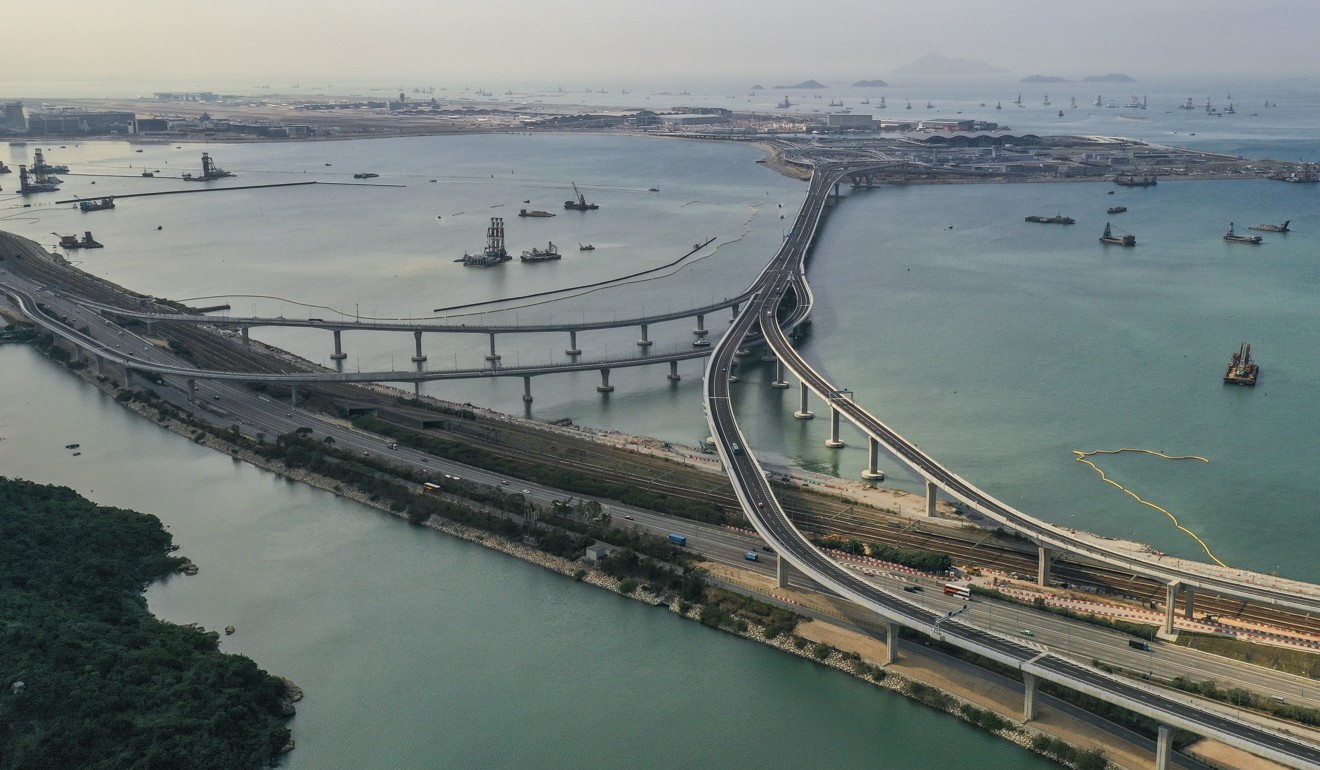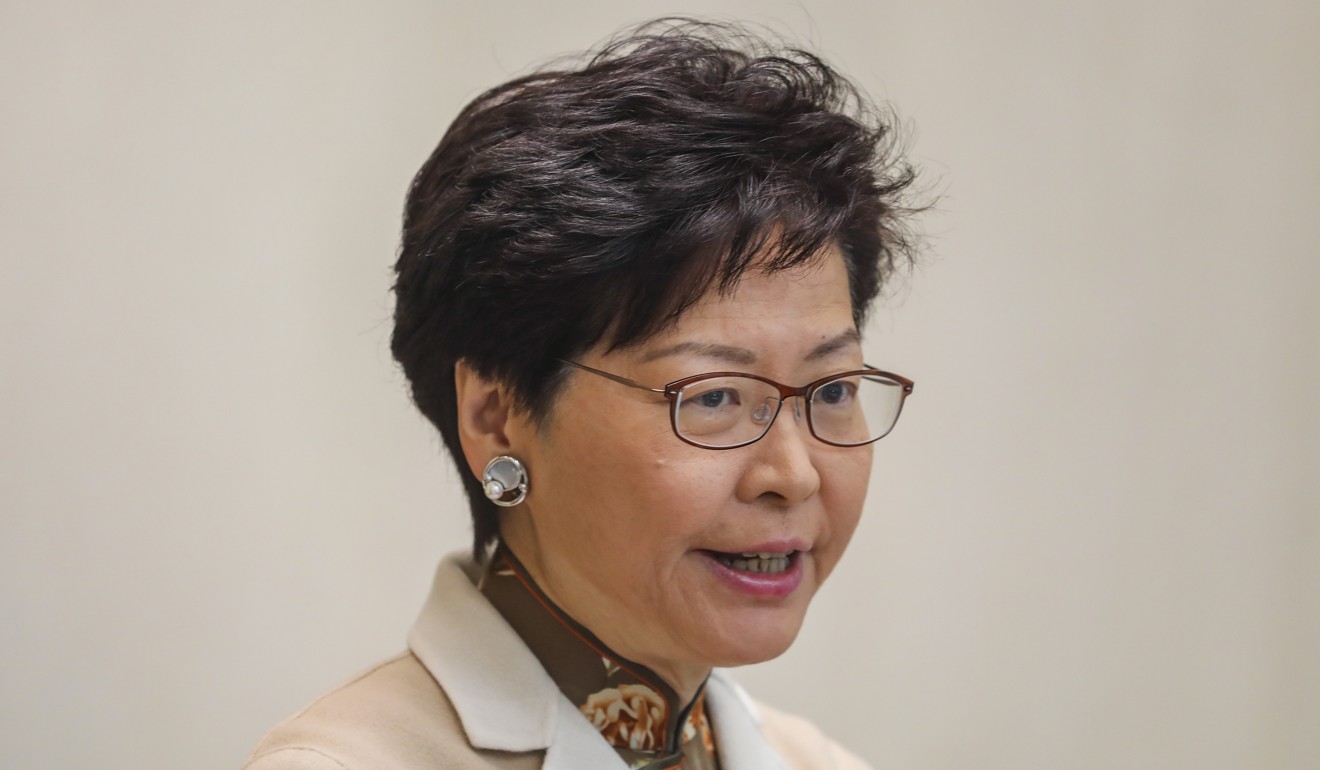
Highways Department waited two years before taking action on late safety documents for Hong Kong-Zhuhai-Macau Bridge
- Authorities told about the matter as early as 2016, new report reveals
- Nearly 15,000 inspection forms not submitted on time, more than 10,000 initially stated
Hong Kong’s Highways Department knew as early as 2016 about overdue safety documents from a contractor working on a cross-border mega bridge but did not pursue the matter until two years later, it was revealed on Thursday.
The latest report submitted by the department and the Transport and Housing Bureau to the Legislative Council also revealed that the number of late inspection forms involved in the construction of the Hong Kong-Zhuhai-Macau Bridge totalled nearly 15,000, more than the 10,000 first reported on Sunday, when the scandal broke.
The department said, however, that the incident involved only delayed submission of the documents and not any missing papers or construction quality issues, as an independent auditor it appointed last year confirmed that most of the work concerned had been conducted under supervision.
Lawmakers, who are set to grill officials on the scandal at a meeting on Friday morning, accused the department of trying to cover up the matter and called for the hiring of an independent consultant to double check the safety of the world’s longest sea crossing.
It was revealed on Sunday that China State Construction Engineering (Hong Kong), which was tasked with building an HK$8.88 billion (US$1.13 billion) connecting road to the bridge, waited two years before providing thousands of Request for Inspection and Survey Checks (RISC) forms in 2018 to Ove Arup & Partners Hong Kong, the engineering consultant for the project.
In general, an RISC form is submitted by a contractor after an inspection is carried out for a completed work process.
The Highways Department responded on Sunday night that it had been notified of the situation in late July 2018 by Ove Arup staff stationed at the construction site that the contractor had failed to submit more than 10,000 RISC forms on time.

“The Highways Department immediately requested the resident site staff of the engineering consultant to submit the site construction records and received the relevant records in August 2018, including a large number of photo records,” the department’s statement said.
In its report on Thursday, however, the department admitted that Ove Arup had informed it about the delayed submissions two years earlier, in July 2016.
But the department did not demand that the company submit inspection records or report the situation to the Transport and Housing Bureau until late July last year.
The department was then told by Ove Arup staff that more than 14,700 forms – 28 per cent of a total of 52,500 safety documents – had not been submitted on time by the contractor.
Its report to Legco did not explain why the department had waited two years before taking action.
Although 5,255 documents – 35 per cent of the 14,839 forms – were related to the structure of 39 projects, including tunnels and bridges, the Highways Department said the incident did not involve any problems with construction quality.
“The incident was only about the contractor failing to submit the documents in accordance with the contract’s requirements, instead of destroying or losing the documents,” the department concluded.
It said an independent auditor it appointed in August 2018 confirmed that the Ove Arup staff had been monitoring and documenting the construction process systematically.
Quoting the auditor’s report, the department said 14,762, or 99.5 per cent, of the RISC forms that were submitted belatedly were supported by authentic and acceptable materials, meaning resident site staff had directly participated in monitoring the construction.
But the department conceded that the late submission of the documents was not ideal, and that it would record the incident in the quarterly performance reports for both the contractor and the consultancy. It would also seek to recover the cost of HK$2.3 million for hiring the independent auditor from China State Construction Engineering.
It was revealed in the report to Legco that China State Construction Engineering submitted the 14,839 overdue documents in several batches between July and September last year, covering projects conducted between 2012 and 2017.
The department also said it would study how to improve the supervision of engineering consultants and proposed to set up a system to monitor the submission of safety inspection documents.
On Tuesday, Chief Executive Carrie Lam Cheng Yuet-ngor ordered a thorough review of the bridge’s monitoring system as similar belated submission problems had also emerged on the city’s most expensive rail project, the Sha Tin-Central link.

Legco transport panel deputy chairman Jeremy Tam Man-ho, of the Civic Party, said on Thursday night that he was dumbfounded by the department’s procrastination.
“It first received reports of missing RISC forms in July 2016, but it seemed to have been satisfied when it noted that the contractor was following up on the issue. It had to wait for another two years to take action and eventually found that some 30 per cent of the forms were not submitted on time as required,” Tam said.
How could the project be approved without the forms that certified survey checking and inspection being submitted?
“The simple question is: how could the project be approved without the forms that certified survey checking and inspection being submitted?”
Panel member Andrew Wan Siu-kin, of the Democratic Party, said he suspected the matter involved malpractice at all levels.
“Apparently, the department had tried to cover it up,” he said. “I would urge the government to hire an independent consultancy to re-inspect the safety of the land link and the related construction works to restore public confidence in the project. It is perhaps sheer luck that the link road has not collapsed by now.”
Hong Kong engineer Albert Lai Kwong-tak, convenor of the Professional Commons think tank, also said the saga had exposed a “system failure”.
“When the government takes a can’t-care-less attitude, the contractors will also take such an attitude. If a pupil knows he won’t be punished for not doing homework, he will think, why he should have to do homework at all?”


